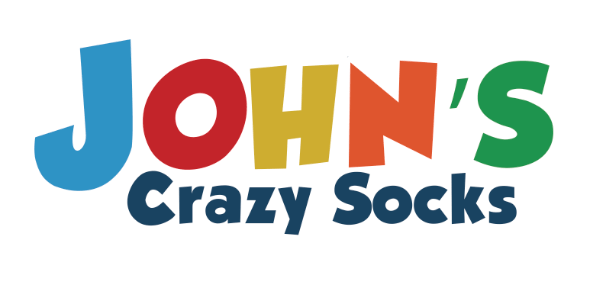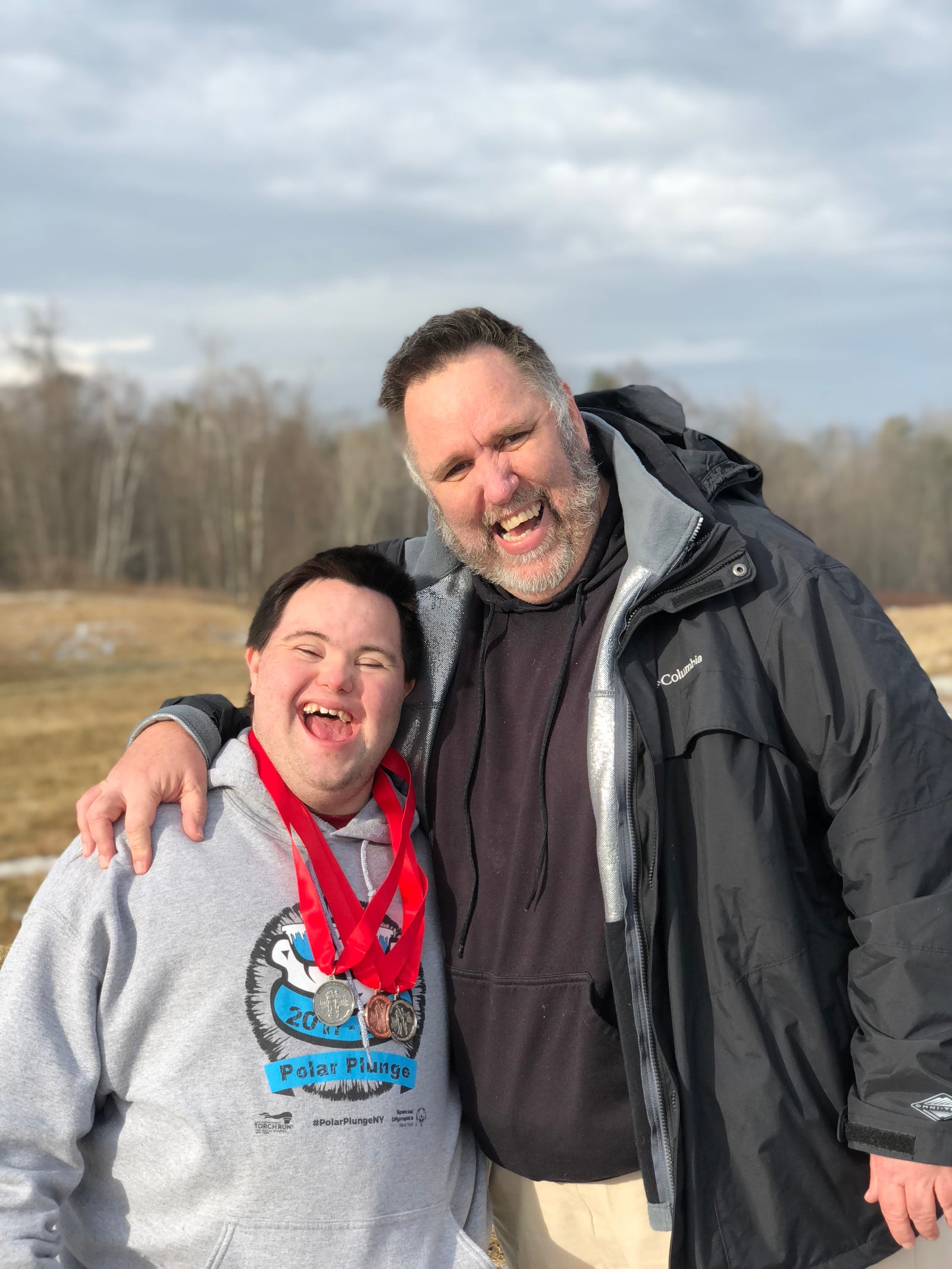You see a group of people with Down syndrome,how do you describe them?
How should we refer to our colleagues on the autism spectrum?
Language matters.It shapes how we think and see the world. It shapes how we see ourselves. When I think of my son John, I do not think Down syndrome first,I see my son, a wonderful young man. John just happens to have Down syndrome.
At John's Crazy Socks, we use the term differing abilities and differently-abled to refer to much of our workforce. That is a newer term and the language we use – disabilities, handicapped – changes all the time. I want to share some of our experience and insights. Recognize, there is no definitive answer on what language to use and usage will continue to evolve. What’s most important is the perspective we hold: the words we use will make manifest how we see people.
Let’s consider how we speak of our co-founder: John has Down syndrome. How do we refer to John? What terms should we use? Start with the concept that John is a person first. He happens to have Down syndrome just as he happens to have brown hair and a quick smile. Thus, John is not a Down syndrome person, he is a person with Down syndrome. He is not a Down syndrome entrepreneur, but an entrepreneur with Down syndrome. His Down syndrome does not define his entire person; it is part of him, not all of him.
We could extend the approach of how to refer to John to all our colleagues. We work with individuals who have autism, not autistics. Matt is not an autistic worker, but a worker on the autism spectrum. Someone in a wheelchair is not defined by the wheelchair but uses a wheelchair. Think Stephen Hawking: he was defined by the power of his mind, not the fact that he used a wheelchair. work in physics, not by his disability.
Disability vs. Handicap
John does not think of himself as handicapped. He is not defined by his limitations. Therefore, we avoid using the term handicapped. And we do not call someone disabled. It is better to refer to him or her as having a disability.
Likewise, we do not define a person by physical disability. We do not say “wheelchair bound” or “confined to a wheelchair.” The person is a wheelchair user. The wheelchair is not a prison, but a tool that gives the person mobility and freedom.
Think of John’s Down syndrome or a colleague’s autism as a neutral fact, just as you would their height. Down syndrome is not a disease, it is a syndrome, a condition. Likewise, autism is not an illness, but a condition. John does not suffer from Down syndrome. His friends are not afflicted with autism. John is not a victim. He is not slow, backwards or handicapped. He is not cursed. He is not disabled. He is a man with a disability just as he is a man with a good sense of humor.
John is not seeking a cure for his Down syndrome. He did want medical treatment for his heart condition and he does work to overcome his low muscle tone. Those are specific medical conditions. Down syndrome and autism are not diseases to be driven out.
John, like everyone else with Down syndrome, has an intellectual disability or cognitive disability. We no longer use the term mentally retarded and we would never say someone is retarded. John’s intellectual disability deprives him of certain abilities, but he excels at others. We should not let a particular disability prevent us from seeing a person’s strengths. And never use the term retard. It has become a singularly offensive word. We campaign against the use of the “R word.”
John does not have a “mild case” or moderate Down syndrome. He has Down syndrome. In a similar fashion, a person with Asperger’s syndrome does not have a mild case of autism, she is on the autism spectrum.
What is Normal?
We refer to many of our employees as having differing abilities. When talking about our colleagues, we avoid using the term normal. After all, what is normal? Instead, we say typical. We have colleagues with disabilities and neuro-typical employees. We often say that we work with people with differing abilities as well as neuro-typicals. We can also say that many of our employees have an intellectual disability. We refer to our workplace as a unified workplace where people with differing abilities work side-by-side neuro-typicals.
Take People as They Are
It is helpful to avoid making generalizations the same way you would with any other group of individuals. There is a saying, “If you have met one person with autism, you have met one person with autism.” That is because the spectrum covers such a wide range of behaviors.
You may hear someone say that people with Down syndrome are always happy and smiling. That sounds nice, but it infantilizes a whole group of people. People with Down syndrome can be happy, sad, angry and joyous just like any of us. They are just people.
Note on Spelling Down syndrome
Down syndrome is named for a British physician, John Langdon Down, who first described the syndrome. Thus, his name is capitalized, and syndrome is not. And it is not Downs, but Down after his name.
A Quick Guide on What to Say and Not Say
|
Don't say |
Do say |
|
An autistic (some individuals may refer to themselves in this way, however) |
Person/child on the autism spectrum/autism (including Asperger syndrome) |
|
Downs |
A person with Down syndrome |
|
Suffers from or is a victim of autism, Down syndrome, Fragile X syndrome, etc. |
Is is on the autism spectrum/has an autism spectrum disorder/ has Down syndrome, etc. |
|
Retarded/mentally handicapped/backward |
Person with a disability |
|
Disabled |
Person with a disability |
|
Mentally retarded |
Intellectual disability or cognitive disability |
|
Disease/illness/handicap |
Disability or condition |
|
Asperger syndrome is a mild/rare form of autism |
Asperger syndrome is a form of autism |
|
Normally developing children |
Typically developing children |
|
Normal |
Neurotypical |




